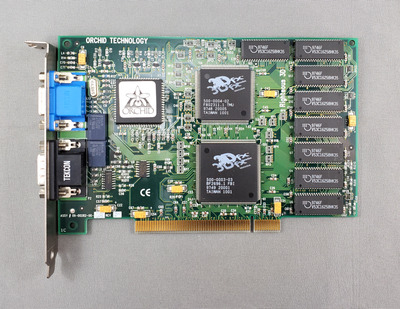First post, by Shponglefan
- Rank
- l33t
Updated: The video card itself is fine. The problem is I was testing it on a Pentium 4 which was clearly too fast for it to work reliably.
I have this Orchid Righteous 3D that is having issues.
Using MOJO.EXE and logging debug output, the results appear fine in comparison to what others have posted from working cards.
I then tested it with Whiplash (Fatal Racing) and Tomb Raider in DOS. Whiplash works fine. Game loads, plays fine, no artifacts or other 3D issues.
Tomb Raider freezes on the spinning 3Dfx logo. This is sometimes accompanied by visible artifacts or even a full-screen of multi-colored noise.
I can launch Tomb Raider if I restrict the card to only 1MB of TMU memory via SET SST_TMUMEM_SIZE = 1. It will run in-game, but attempting to bring up the menu causes the game to drop to DOS with an error about not being able to access the memory. Which I suppose makes sense since the card is being restricted to only 1MB of TMU memory.
Is there any way to know which memory chips are utilized when TMU memory is set to 1 MB? Or rather, which memory chips are not being used?
If I can narrow it down to only two of the memory chips, I can then try replacing one then the other.

